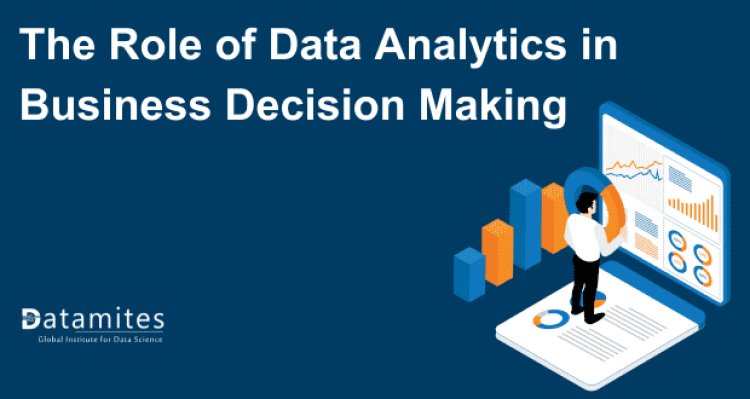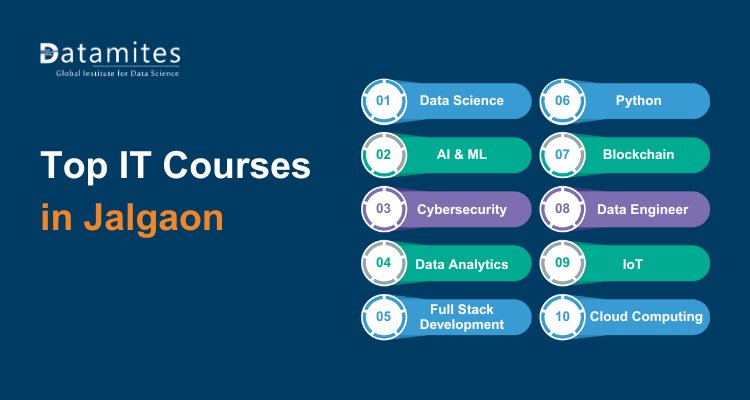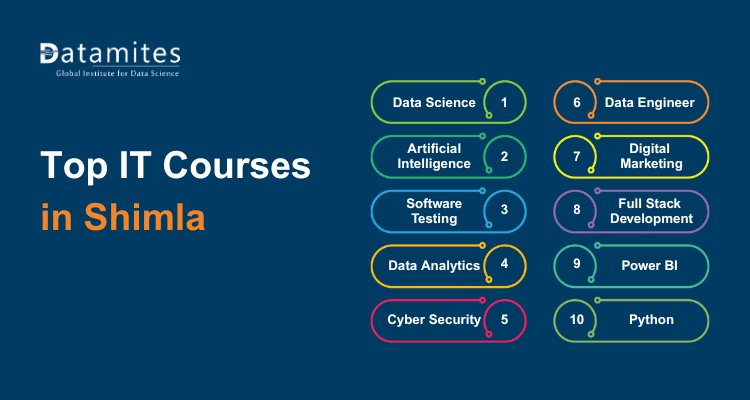The Role of Data Analytics in Business Decision Making

Did you know that 97% of organizations are investing in big data and AI to gain valuable insights from their data? This statistic emphasizes the rapidly growing significance of data analytics in business decision-making. In today's competitive market, businesses can no longer rely on gut instincts alone. They need data to guide their strategic decisions and stay ahead of the curve.
A Statista report reveals that the global data analytics market, valued at about $274 billion in 2023, is anticipated to grow to $528 billion by 2027. This growth represents a compound annual growth rate (CAGR) of roughly 18.1%.
In this blog, we'll delve into the crucial impact of data analytics on business decisions. We'll explore how organizations leverage data to make well-informed choices, gain valuable customer insights, and enhance their operational efficiency. By the end, you'll understand why data-driven decision-making is crucial for business success and how data analytics courses and training can equip you with the skills needed to thrive in this data-centric world.
What is Data Analytics?
At its core, data analytics refers to the process of analyzing raw data to uncover trends, patterns, and insights that can help businesses make informed decisions. It involves various techniques and tools to interpret data, providing valuable information that can be used to drive business strategies.
Types of Data Analytics
- Descriptive Analytics: This type of analytics focuses on examining past data to answer the question, "What happened?" It entails analyzing historical data to uncover trends and patterns.
- Diagnostic Analytics: Going a step further, diagnostic analytics digs into the reasons behind past outcomes. It helps businesses understand the "why" by identifying causes and correlations.
- Predictive Analytics: This type uses historical data and machine learning algorithms to forecast future outcomes. It offers a glimpse into future developments, allowing businesses to anticipate trends and strategize accordingly.
- Prescriptive Analytics: Prescriptive analytics, the most sophisticated type of data analysis, guides decision-making by recommending specific actions to reach desired goals. It addresses the question, "What actions should we take?" by offering actionable advice grounded in data-driven analysis.
Refer these articles:
- Exploratory Data Analysis: Techniques and Tools
- Descriptive Vs Predictive Vs Prescriptive Analytics
- Data Analytics Lifecycle
The Significance of Data Analytics in the Modern Market
In today's rapid digital landscape, businesses must make swift and precise decisions. Data analytics serves as a crucial tool, offering a solid base of factual insights. Firms that harness data analytics gain a deeper understanding of market dynamics, enhance customer experiences, and secure a competitive edge. In essence, relying on data-driven decisions has transitioned from being a choice to an imperative.
How Data Analytics Influences Business Decision-Making
Data analytics is essential in today's business landscape, converting raw data into valuable insights that drive informed decision-making. Here’s a breakdown of how it impacts various aspects of business decision-making:
1. Informed Decisions
One of the most significant advantages of data analytics is the ability to make informed decisions. Instead of relying on assumptions, businesses can analyze real data to understand what works and what doesn’t. Whether it's launching a new product or entering a new market, data-driven insights provide a solid foundation for decision-making.
2. Identifying Trends
Data analytics empowers businesses to recognize new trends as they emerge. By analyzing historical data, companies can spot patterns that indicate upcoming shifts in the market. This allows them to adapt their strategies proactively, staying ahead of competitors and capitalizing on new opportunities.
Example: Retailers leverage data analytics to forecast seasonal trends, enabling them to tailor their inventory levels appropriately.
3. Customer Insights
Understanding customer behavior is critical for business success, and data analytics provides valuable insights into customer preferences and buying patterns. By analyzing customer data, businesses can tailor their marketing efforts, personalize customer experiences, and improve retention rates.
Example: E-commerce platforms use data analytics to recommend products based on customers' previous purchases and browsing history.
4. Risk Management
Predictive analytics is essential for effective risk management. By analyzing potential risks and predicting future challenges, businesses can take proactive measures to mitigate them. This reduces the likelihood of unexpected disruptions and ensures business continuity.
Example: Financial institutions use predictive analytics to assess credit risk and prevent fraud.
5. Efficiency Optimization
Data analytics enables businesses to pinpoint and address inefficiencies within their operations. By analyzing processes and workflows, companies can streamline their operations, reduce costs, and improve productivity. This results in more efficient use of resources and boosts profitability.
Example: Manufacturers use data analytics to optimize production lines and minimize waste.
6. Competitive Advantage
In today's fierce market, companies require every edge they can find. Data analytics provides that edge by enabling smarter, faster decision-making. Companies that leverage data-driven insights can outmaneuver their competitors, making strategic moves that others may miss.
Example: Companies like Netflix use data analytics to curate personalized content, giving them an edge over traditional media providers.
7. Performance Tracking
Data analytics is crucial for monitoring and evaluating performance. By monitoring key performance indicators (KPIs), businesses can measure the success of their initiatives and make data-driven adjustments as needed.
Example: Marketing teams use data analytics to track campaign performance, making real-time adjustments to maximize ROI.
Refer these articles:
- What is Datamites Certified Data Analyst Certification
- What is Certified Data Scientist Course
- What Is AI Engineer Course
Key Applications of Data Analytics in Business Decision-Making
Data analytics plays a crucial role in business decision-making by providing insights and supporting strategic choices. Here are some key applications:
Marketing and Sales
Data analytics is a game-changer in marketing and sales. By analyzing customer data, businesses can segment their audience, create targeted campaigns, and optimize marketing spend. This leads to increased conversions and higher customer satisfaction.
- Customer Behavior Analysis: Understanding what motivates customers to make a purchase.
- Campaign Optimization: Adjusting marketing strategies based on real-time data to improve results.
Operations Management
In operations management, data analytics helps businesses optimize supply chains, manage inventory, and improve processes. By examining operational data, companies can identify and address bottlenecks, cut costs, and guarantee the prompt delivery of products and services.
- Supply Chain Optimization: Ensuring the right products are available at the right time.
- Process Improvement: Identifying inefficiencies and implementing data-driven changes.
Financial Planning
Financial planning is another critical area where data analytics shines. By analyzing financial data, businesses can create accurate forecasts, manage budgets efficiently, and assess potential risks. This leads to better financial decision-making and long-term stability.
- Forecasting: Forecasting future financial outcomes by analyzing past performance data.
- Risk Assessment: Recognizing possible financial hazards and crafting strategies to address them.
Human Resources
In human resources, data analytics helps companies manage talent more effectively. By analyzing employee data, businesses can improve talent acquisition, enhance employee retention, and optimize performance management.
- Talent Acquisition: Using data to find the right candidates for open positions.
- Employee Retention: Analyzing employee satisfaction and turnover trends to improve retention strategies.
The Power of Data Analytics: Case Studies and Emerging Trends
Data analytics is a game-changer across various industries, leveraging vast amounts of data to drive decision-making and strategic planning. Here’s a look at some notable case studies and emerging trends in the field:
Case Study 1: Amazon
Amazon is a prime example of a company that has excelled in utilizing data analytics. The e-commerce leader leverages data to enhance nearly every facet of its operations, including inventory management and personalized recommendations. By analyzing customer information, Amazon can forecast buying patterns, suggest relevant products, and guarantee prompt delivery, all of which play a crucial role in its success.
- Personalization: Amazon's recommendation engine drives significant sales by suggesting products customers are likely to purchase.
- Operational Efficiency: Data analytics helps Amazon optimize its supply chain, reducing costs and improving delivery times.
Case Study 2: Healthcare Industry
In the healthcare sector, data analytics is transforming patient care. Hospitals and clinics use data to predict patient outcomes, personalize treatment plans, and improve operational efficiency. For example, predictive analytics can identify patients at risk of readmission, allowing healthcare providers to intervene early and prevent complications.
- Predictive Analytics: Forecasting patient outcomes to improve treatment plans.
- Operational Efficiency: Streamlining hospital operations to reduce wait times and enhance patient care.
Case Study 3: JPMorgan Chase's COiN (Contract Intelligence)
- Challenge: JPMorgan Chase needed to streamline the process of reviewing legal documents, which was time-consuming and labor-intensive.
- Solution: COiN leverages machine learning to sift through legal documents and pull out pertinent details, cutting down the time needed for document review.
- Outcome: The technology significantly cut down the time spent on document review and reduced errors, improving overall efficiency.
Case Study 4: Uber's Dynamic Pricing
- Challenge: Uber needed to manage supply and demand efficiently to balance the number of riders and drivers.
- Solution: Uber uses data analytics to adjust pricing in real-time based on demand and supply, optimizing driver availability and rider experience.
- Outcome: This dynamic pricing model helps ensure that drivers are available when and where they are needed, while also managing rider expectations during peak times.
Refer these articles:
Emerging Trends: The Role of AI and Machine Learning
As data analytics continues to evolve, AI and machine learning are playing increasingly important roles. These technologies enhance data analytics by automating processes, improving accuracy, and uncovering insights that may have been overlooked. Businesses that incorporate AI and machine learning into their data analytics strategies will be better equipped to handle the complexities of today's data-driven world.
- Automation: AI handles repetitive tasks, allowing people to focus on more strategic and creative work.
- Advanced Insights: Machine learning algorithms can analyze vast amounts of data quickly, uncovering patterns that would be impossible for humans to detect.
In summary, data analytics is a powerful tool that enables businesses to make informed decisions, optimize operations, and gain a competitive edge. Whether it's understanding customer behavior, predicting market trends, or managing risks, data-driven decision-making is essential for business success. To thrive in this data-centric world, investing in a data analytics course or data analytics training can equip you with the skills needed to harness the full potential of data. Leverage the power of data analytics to drive your business to extraordinary achievements.
As we navigate the increasingly data-driven landscape of business decision-making, it's crucial to stay ahead with cutting-edge skills and knowledge. At DataMites Institute, we offer cutting-edge Data Analytics Certification courses designed to equip professionals with the skills needed to excel in today's data-driven world. Our Data Analytics course is accredited by IABAC and NASSCOM FutureSkills, ensuring industry-relevant training and certification. We also provide comprehensive programs in Data Science, Artificial Intelligence, Machine Learning, and Python Training, catering to diverse learning needs. Our training is available both online and in-person across major Indian cities, including Bengaluru, Chennai, Pune, Hyderabad, Mumbai, Ahmedabad, and Coimbatore. By joining DataMites, you’ll benefit from the guidance of seasoned instructors and be well-prepared to lead in the evolving tech-driven world. Take the next step in your career with DataMites and transform your approach to business decision-making through the power of data.





